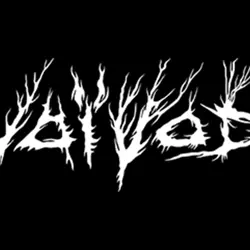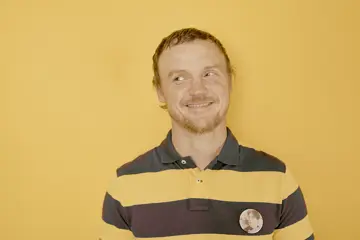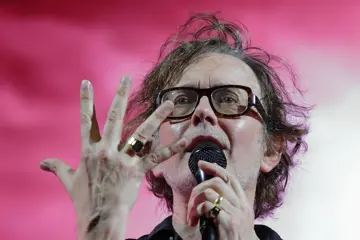 Voivod
VoivodThroughout decades of record industry attempts to package heavy music artists into compact categories, subgenres and marketing strategies, Voivod have remained an anomaly. Beginning life as a raw thrash metal act, by 1987's Killing Technology the Canadians were incorporating a significant progressive element to their songs. In the ensuing decades they've also flirted with the likes of industrial, rock and alternative, but typically retained a distinctive sound and identity.
“We try to not force it, and go with ideas that come naturally,” vocalist Denis 'Snake' Bélanger suggests. “After 35 years I think instinctively you know what's meant to be there or not, and what sounds like Voivod or not. We're guided by our instinct, and basically we know whether it fits there or not. We don't want to be too much into a working process, you know?” he laughs.
The Music suggests to the singer that no other act truly sounds like Voivod; some pundits have even suggested the band is almost a genre unto itself. “We never really did something twice. So it's always a challenging [thing]... Especially with the Voivod case, it's been influenced by a lot of prog stuff. Because when we started up the band, 'Piggy' (late guitarist Denis D'Amour) was a little bit older than us, and he was influenced by Yes, Genesis, Gentle Giant and bands like that, that prog influence.
“So 'Piggy' brought that to the band, and the rest of the boys were into British metal, punk and hardcore. [Those] both sides kind of collide and create that thing that is Voivod. It's hard to explain, to pinpoint exactly what Voivod is. I think Voivod is in a branch somewhere on the map,” he laughs. “We try to be artistically ourselves. After [1986's] Rrröööaaarrr, which was like thrash metal and all that, then we started working on Killing Technology, I think that's when we kinda decided that, 'Okay, we're different than the other bands out there, that's for sure'. [That] we should just be what we are, and not caring about the brand, the style or where it's supposed to fit or not.
Don't miss a beat with our FREE daily newsletter
“I'm glad we did, because I like metal and everything, but sometimes bands are stuck in it, and they cannot do something that is totally out there because they're categorised as a 'metal band'. Voivod can go wherever it wants to go, and in my opinion it's going to sound like Voivod, regardless of the trend or the brand or whatever.”
Perhaps that's been to their detriment commercially - they haven't enjoyed the consistent chart-bothering success of some of their peers - but the unique tack that's often eluded simple classification in a world of soundalikes has likely helped ensure their longevity. “It was a different path of success for us. Sometimes you have to work harder for less. It's a difficult trail you have to climb uphill... Any bands out there that have a formula that works, they're going to stick with it [because] it's less complicated for everybody I guess. But we've never been that, we've never wanted to be like that. I think we always wanted to be artistically free, no matter what's out there, and what's popular or not.”
The urge to be "artistically free" is prominent on recent releases, including the psychedelic prog-metal of latest full-length The Wake. Following D'Amour's 2005 death and long-time bassist Jean-Yves 'Blacky' Thériault leaving in 2014, nowadays, it's up to Bélanger (who has had two stints with Voivod, from 1982 to 1994 and 2002 to present) and founding drummer Michel 'Away' Langevin to carry on Voivod's legacy.
A significant facet of the band's aesthetic appeal has long been 'Away's eye-catching album artwork. “He's quite something,” Bélanger chuckles of his bandmate. “He always comes up with different stuff. Sometimes it's hard to pinpoint, like, 'Okay, he's been inspired by this or by that.' He's unique, and each album, I look at, and I've always said to myself, 'where does he get this idea from? What was the flash that he had to create?'”
The sticksman's other work has included the cover for Dave Grohl's Probot project. “I've seen Michel drawing everywhere. That's what I call a spontaneous artist, or something that he is doing every day. People sometimes, they do different kinds of stuff. People go out and smoke a cigarette, he's going to be on a table somewhere in a restaurant, with a napkin, and draw on the napkin something. He always has a pen in his hand, and he's great. He's unique as an artist, and he has a lot of respect for that. He released a book a few years ago, and it's still selling really good. It's fun to see an artist that has recognition sometimes of the hard work they've been doing all these years.”















